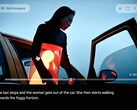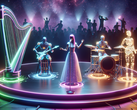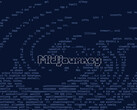Generative AI received a huge popularity boost a few years ago thanks to the rise of text-to-image models that were proficient at reproducing any existing painting style, digital rendering method and even realistic photography types. While text-to-image models are still evolving, this year the focus seems to have shifted towards text-to-video models, a niche where progress is made at a much faster pace. There are quite a few companies developing video models right now, and one of the more advanced solutions in this field is offered by Runway with its Gen-3 Alpha. Of course, the company does not really disclose the exact materials used to train the video model, but very soon, Runway will not even need to worry about regulations and legal frameworks since it just signed a deal that allows unhindered access to Lionsgate’s entire film and TV series catalog to serve as training material for a custom video model.
Runway’s partnership with Lionsgate is indeed surprising since actors and producers expressed vehement concerns about AI-powered tools just last year. The 2023 Writers Guild strikes focused in part on the problematic use of ChatGPT-like tools that could entirely replace actual persons who are tasked with writing scripts. Lionsgate is now facilitating the use of video footage complete with actors and scenery from films like The Hunger Games, Rambo, John Wick, The Expendables, The Twilight Saga and The Divergent Series in order to train video models.
Ideally, Runway’s custom video model would “help Lionsgate Studios, its filmmakers, directors and other creative talent augment their work,” as it “generates cinematic video that can be further iterated using Runway’s suite of controllable tools.” The actual purpose for the use of such video models is the development of “cutting edge, capital efficient content creation opportunities.” In other words, Lionsgate is looking to cut production costs as much as possible, since, compared to bigger studios, access to big blockbuster budgets is more limited.
Ethical use aside, the implications might run deeper if we factor in the business-oriented side opening up with licensing opportunities. In the last paragraph of the press release, Runway mentions that it also plans to work with other studios and develop custom video models that will eventually be licensed or offered as “templates that can be made available to individual creators interested in building and training their own proprietary models.” This means that proprietary film footage including IP can be used to train video models for other companies that are willing to pay. Presumably the studios offering their footage to train video models for other companies or individuals would get royalties as well, but this is not mentioned.


















